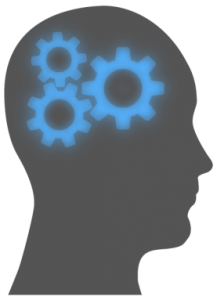 For decades I’ve been fascinated with engines for success … car engines, social engines like facebook, and financial engines like business plans. Any puny old human, with the right engine and fuel (society and resources) could make almost anything happen that they really wanted to. They could do literally anything, with the right engine.
For decades I’ve been fascinated with engines for success … car engines, social engines like facebook, and financial engines like business plans. Any puny old human, with the right engine and fuel (society and resources) could make almost anything happen that they really wanted to. They could do literally anything, with the right engine.
Every engine runs on tried and true principles … physics, human behavior, supply and demand, etc. Understood correctly, these principles can be leveraged through following a set of instructions, a “program” if you will, to create and operate new and more powerful engines. The fundamental design of these programs, these sets of instructions, is called an algorithm. Algorithms are often thought to be programs … but they are far more than programs or a sets of instructions.
Algorithms are the “how does it work”. It identifies the motivations, the tools, the resources, and everything necessary to do that work, including the principles by which it works. Algorithms are basically “How it works” manuals, and utilizes abstract thought, comprehension, and purpose.
In fact, algorithms are the only thing that can be patented for utility patents. You can’t patent a “what” idea … of course unless it’s a design patent (which only protect the decorative aspect of a thing). Most people don’t know that. Here’s an idea: a teletransporter that beams tocos from my freezer to my oven to my mouth, all with the push of a button. Sounds cool, but that can’t be patented, because it’s not a “How” idea (eg. how the transporter works … and what instructions must be followed to create this thing). It’s not an algorithm. Mere instructions can’t be patented either … a patent has to have an objective, and it has to work by fundamental principles that can be and have been demonstrated.
But I’m still selling algorithms short. The most powerful things about algorithms, the “how does it work” stuff in life, is that our brain lives on algorithms. Thinking is an algorithm, in fact the only thing that separates our brain from computers is that we don’t follow instructions. We follow algorithms. That’s what it means to be alive. And computers are not alive. They don’t really know how things work, they don’t understand the fundamental principles by which things work, or how those things fit together. A neural network seems to come close … but no. It just understands relationships, not abstract thought … and algorithms are to abstract thought as instructions or programs are to computation.
The most important and fundamental algorithms on which our brains operate are those in which we invest for ascertaining truth. These algorithms for truth guide and shape everything we do … every decision, every opinion, every understanding, every hope and fear and passion. Algorithms for truth lead us the way a map leads an explorer, or the way a rabbit’s vision leads them as they cross a busy street.
Yes, like the decisions a bunny makes crossing a freeway, if we are not careful with our choices … if we follow bad algorithms … the consequences can be dire. And this happens every day to everyone, experiencing the consequences, good and bad, of the decisions they make, but those decisions are not the problem when things go bad. It’s the justification, the thought process, the presumptions and beliefs, the cognitions that lead them to the bad (or good) choice. These are algorithms. The “how” or “why” they came up with that choice. It’s more important that the choice itself.
Due to recent events, I thought that surely there is a well developed science behind the process by which people make choices … and in fact there is but, it’s not easily digestible for the average Joe. Certainly not something someone can watch a video about and say, “Gee whiz, there are plenty of ways I can discover truth more effectively and efficiently, and it’s easy!”
Nope. And while every social media platform is filled with people schooling each other on what they think is true, not too many people are calling enough attention to the fact that based on the algorithms they use for ascertaining truth, their conclusions whether it be to sack to capitol of the United States, or burn down the business of a peach of a guy, seems to be reasonable, because the decisions are based on falsehoods. The problem is their algorithm for truth. And society is in desperate need to be re-algorized.
So here it is, after 4 decades of me thinking on these matters, not a dissertation on my views, but an attempt to make accessible to the average Joe what the real experts (not me) have to say about it. Let’s learn how can we as a society improve our ability to discover truth , and form the best algorithm to assess whatever circumstance might arise.